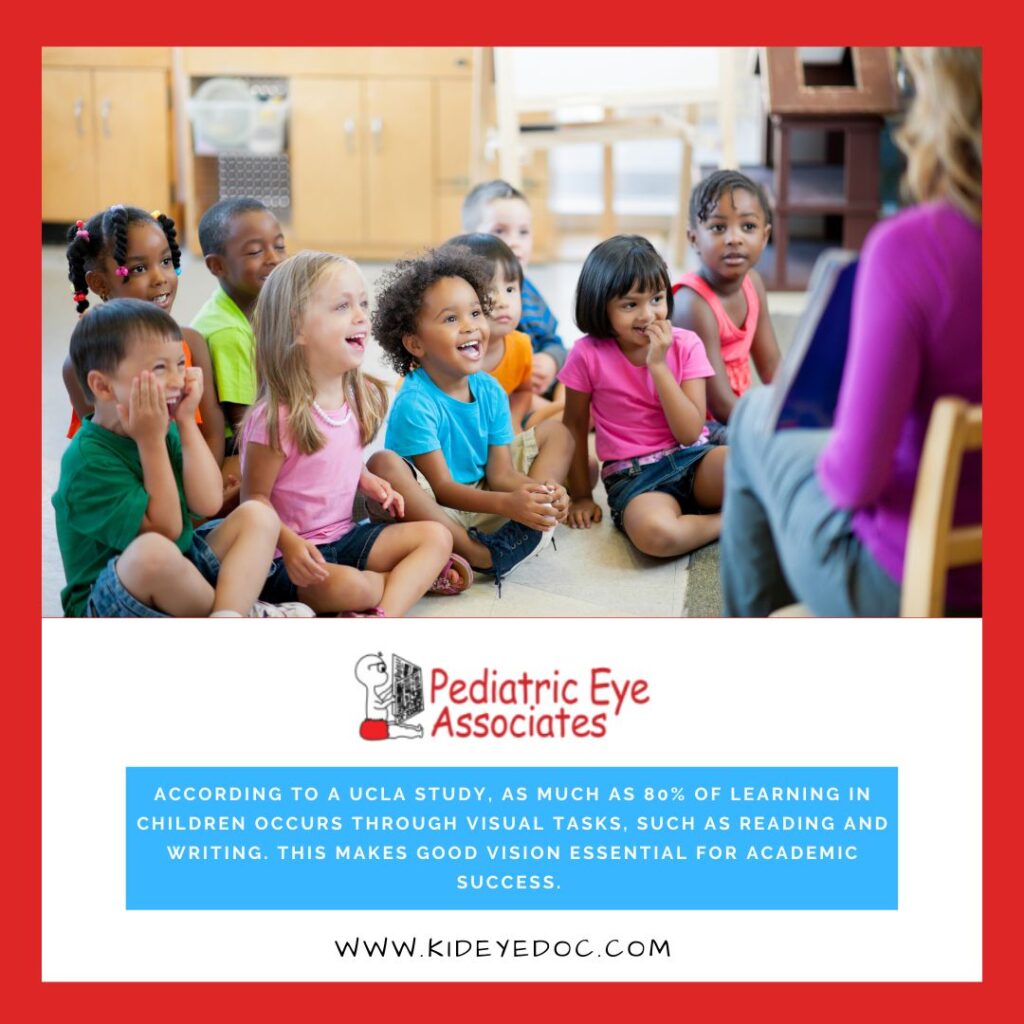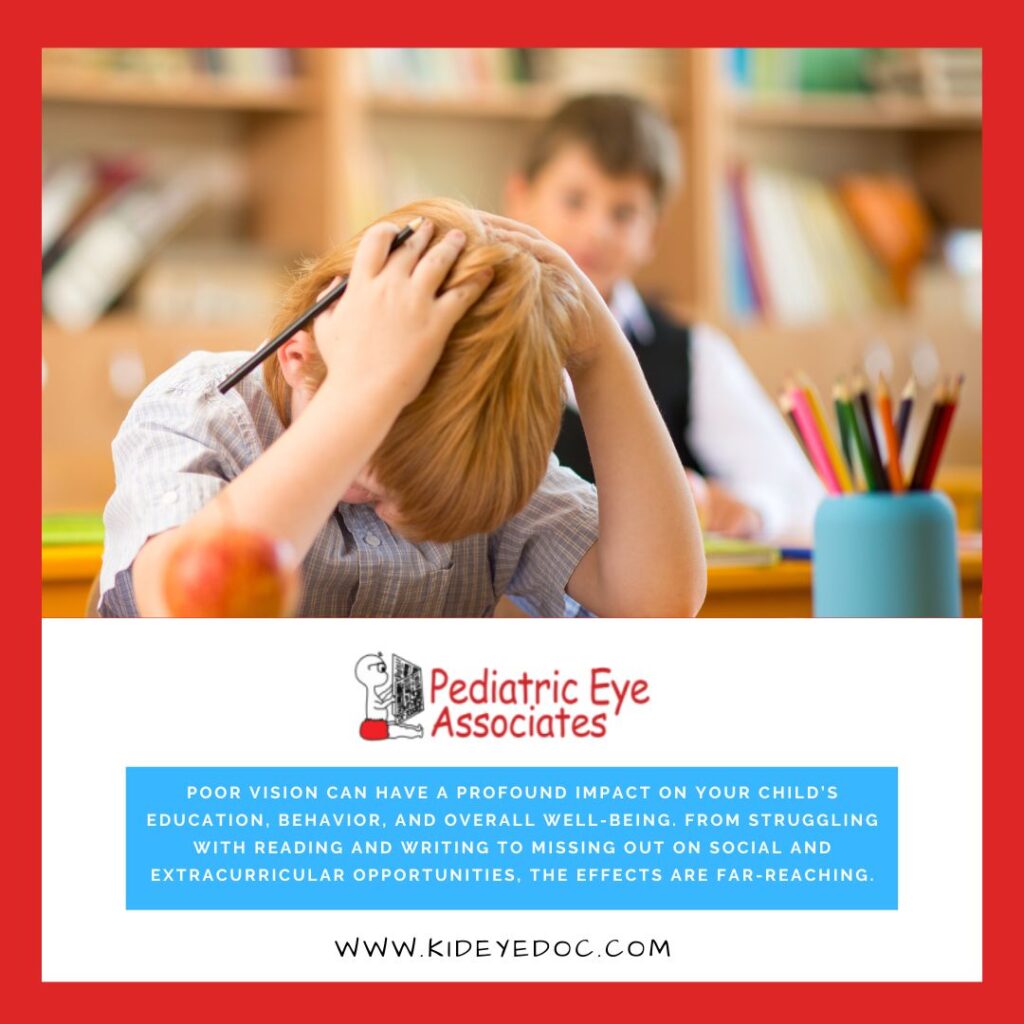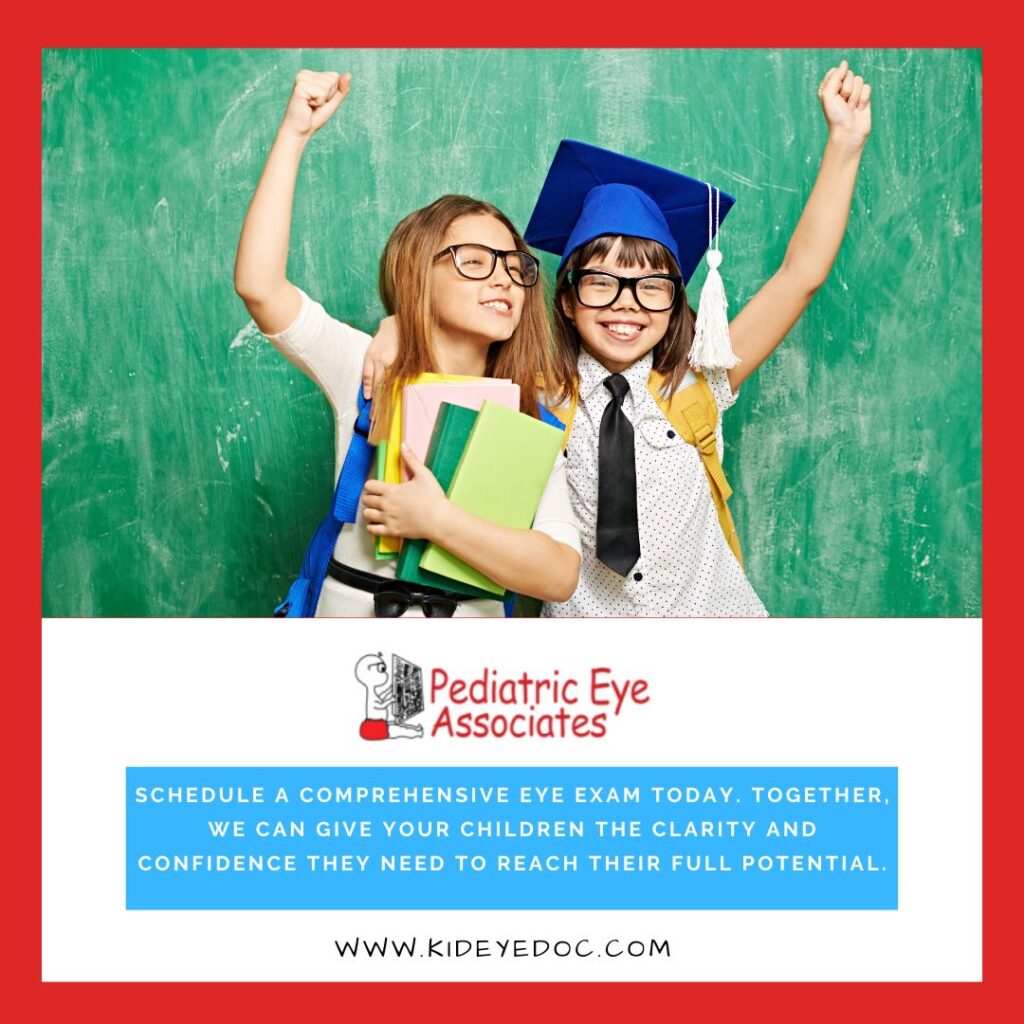Many children complain of being bored at school or not understanding the teacher, but what if the problem could be solved with glasses?
According to a UCLA study, as much as 80% of learning in children occurs through visual tasks, such as reading and writing. This makes good vision essential for academic success.
Unfortunately, one of the most common sources of problems for children in school is an inability to see the board. But not being able to see what’s written is not the only way having poor vision affects children’s ability to learn.
Here are six ways poor vision can impact your child’s school experience and academic performance.
1. Missing instructions
The whiteboard is the focal point of the classroom – it’s where teachers write warmups and explanations, questions to solve, and homework. Imagine not being able to see that – and then being asked to solve a problem dependent on that information. What’s the easiest response? “I don’t know.”
The truth is, your child probably could solve the problem but is too timid to admit that they can’t see it. Not being able to see clearly leads to concentration problems – why squint when you can simply look out the window or let your mind wander?
What you can do
Speak with your child’s teacher to see if they’ve noticed any signs of difficulty, such as squinting, sitting too close to the board, or frequent mistakes in their work.
If there is, then it’s time to visit your pediatric optometrist. A good pair of glasses from our pediatric eye doctor can bring your child’s learning into focus.
2. Slow reading
If your vision is poor – and this can be from any number of problems, not only near or farsightedness – you probably have trouble reading.
Studies on vision problems in children have shown that when children’s eyes don’t work together well, or when one is dramatically stronger than the other, the messages to the brain get mixed up. They have trouble tracking the words on the page, or they mistake similar-looking words for each other.
As you can imagine, feeling like your eyes are going crazy when you read is a quick way to lose confidence and interest in reading – and a quick way to fall behind in school.
What you can do
If your child frequently complains about blurry text or headaches after reading, schedule a comprehensive eye exam. A pediatric ophthalmologist is trained to identify the underlying disorder and provide treatment to get your child’s eyes working together again. At Pediatric Eye Associates, we have two pediatric ophthalmologists on staff to help your child.
3. Behavioral issues in the classroom
Vision problems can manifest as behavioral issues. A child who is unable to see clearly may become restless, distracted, or even disruptive in class. This isn’t because they’re unwilling to learn; rather, they’re compensating for their inability to keep up visually.
In some cases, children with vision issues are misdiagnosed with attention deficit disorders. While these conditions can coexist, it’s essential to rule out vision problems first before exploring other diagnoses.
What you can do
If your child exhibits behavioral challenges, consider having an eye exam as part of their overall assessment. Addressing vision issues may lead to noticeable improvements in their focus and behavior.
4. Coordination problems
Have you ever seen a child on the playground who just can’t seem to stay upright? Maybe he’s not a klutz – perhaps he just can’t see!
Children with undiagnosed vision problems often have poor eye-hand coordination, discouraging them from participating in most sports and team activities. The effect is doubly bad – 1) they don’t have the opportunity to play and learn in natural environments and situations, and 2) they don’t get the physical activity they need to be able to focus on tasks in the classroom.
What you can do
If your child seems to be struggling at school or in afterschool activities, bring them to our pediatric eye doctor for a full eye exam. Let’s rule out vision problems as the source of the issue – or get to solving them and getting your student back on the path to academic success.
5. Impaired social development
Clear vision is crucial for interpreting non-verbal cues, such as facial expressions and body language, which are essential for social interaction. Children with poor vision may struggle to connect with their peers, leading to feelings of isolation or exclusion.
Additionally, a child who is self-conscious about wearing glasses or who struggles academically due to vision problems may withdraw socially. This can further hinder their development of crucial interpersonal skills.
What you can do
Encourage your child to express their feelings about their vision and any challenges they’re facing. If they’re apprehensive about wearing glasses, help them choose a style they feel confident in. Positive reinforcement can go a long way in boosting their self-esteem.
5. Physical symptoms and discomfort
Uncorrected vision issues can lead to various physical symptoms that make it hard for children to focus in school. These symptoms include headaches, eye strain, and fatigue. Your child may also rub their eyes frequently or complain of double vision, disrupting their ability to concentrate on tasks.
Over time, this discomfort can lead to avoidance behaviors. For example, your child might procrastinate on homework or disengage during lessons because they associate these activities with pain or frustration.
What you can do
Pay attention to signs of discomfort, such as squinting or complaining of headaches. An optometrist can diagnose and treat these issues with simple solutions like prescription glasses.
Bright Futures Start with Clear Vision
Poor vision can profoundly impact your child’s education, behavior, and overall well-being. From struggling with reading and writing to missing out on social and extracurricular opportunities, the effects are far-reaching.
However, the good news is that vision problems are often easily corrected with early detection and appropriate treatment.
Pediatric Eye Associates specializes in comprehensive eye exams and treatments tailored to children. Our experienced team understands the unique needs of young patients, providing a comfortable and friendly environment.
Don’t wait until vision issues start affecting your child’s academic performance or quality of life. Contact us today for a comprehensive eye exam with the best pediatric ophthalmologist in NJ.
The material contained on this site is for informational purposes only and DOES NOT CONSTITUTE THE PROVIDING OF MEDICAL ADVICE, and is not intended to be a substitute for independent professional medical judgment, advice, diagnosis, or treatment. Always seek the advice of your physician or other qualified healthcare providers with any questions or concerns you may have regarding your health.



